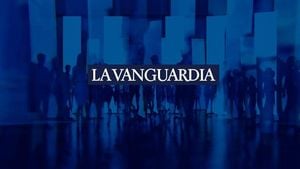Challenges and concerns for wind energy development have reached new peaks as the potential rollback of federal support collides with rising operational issues within the sector. Recently, President Donald Trump signed an executive order halting offshore wind lease sales and pausing approvals and permits for wind projects, both onshore and offshore. His administration, which has consistently positioned itself as skeptical of renewable energy initiatives, emphasizes the need for comprehensive review processes, citing risks to marine life, energy costs, and navigational safety.
According to The Daily Caller, Trump’s executive order suggests significant backing away from the ambitious renewable energy goals set by the previous administration, which aimed for 30 gigawatts of offshore wind power by 2030. The impact of this freeze on wind energy could be substantial, as new developments face potentially endless bureaucratic hurdles and heightened scrutiny. Robin Shaffer, president of Protect Our Coast NJ, expressed concerns about the future of multiple offshore projects as regulatory uncertainty mounts.
The reality on the ground depicts growing challenges for wind energy companies. Material costs are soaring, interest rates are climbing, and supply chain difficulties continue to plague the industry. Reports of project cancellations have become common as developers find their contracts under threat. Notably, the offshore wind industry was rocked by mechanical failures, such as the damaged turbine blades near Massachusetts, creating heightened environmental fears and prompting local opposition.
From Germany, the wind energy narrative paints yet another contrasting picture. A recent report showed Germany successfully approved over 2,400 new onshore wind turbines, with total expected output hitting around 14 gigawatts. Investors and analysts lauded the developments, urging the government to maintain the momentum for future projects. Dennis Rendschmidt, managing director of VDMA Power Systems, stressed the importance of consistency, especially as elections loom on the horizon.
Yet, opposition remains fierce. The far-right Alternative for Germany (AfD) party has made criticism of the renewable energy sector, especially wind, central to its campaign. Party candidates, including Alice Weidel, have railed against wind energy, questioning its viability and the economic burden it imposes. Reflecting on the move away from renewable energy, energy expert Wolf-Peter Schill pointedly stated, "If you don't want wind power or solar energy, then the only option is fossil fuels."
Denmark's Ørsted, one of the global leaders in offshore wind, recently announced significant internal changes amid these challenging times. The company’s CEO, Mads Nipper, is stepping down as Ørsted seeks new leadership to address supply chain issues, regulatory shifts, and financial pressures. Ørsted, which has solidified its position as a renewable energy pioneer, faces potentially ruinous outcomes due to Trump's tightening regulations, particularly as investment confidence wanes. Analysts highlight how this delay jeopardizes Ørsted's pivotal U.S. projects, asserting the need for change to navigate future wind industry hurdles effectively.
Highlighting the broader climate crisis, experts argue against the retreat from renewable sources. They warn of the consequences tied to fossil fuel reliance, which contributes significantly to rising global temperatures and exacerbates extreme weather patterns. For example, rising energy costs directly affect businesses, as highlighted by Weidel’s comments on high-priced wind energy inhibiting competitiveness. Nevertheless, the growing share of renewables, including wind, reportedly reached 59% of Germany's electricity generation by early 2024, illustrating the sector's importance to energy stability.
Recent wind turbine fires, such as one at the Coldham Windfarm, have also raised alarm bells over safety and maintenance issues within the industry. While incidents are relatively rare, they indicate potential hazards associated with turbine operation concerning flammable materials involved. Fires at wind facilities pose concerns for local communities and regulators, amplifying the scrutiny already facing operational practices within wind projects.
Research from Imperial College London identified consistent issues surrounding turbine safety, prompting investigations on managing risks associated with turbine technology. The reality remains: if the industry continues to face heightened scrutiny from both regulatory bodies and the public, achieving broader acceptance and future growth will be challenging.
Looking forward, as international and domestic policies evolve, the wind energy sector must locate paths to innovate and sustain support amid these challenges. Industry advocates argue for long-term planning, emphasizing collaboration among stakeholders to develop strategies ensuring compliance with regulations without stifling renewable innovation.
The global energy transition, reliant upon diverse sources including wind, must combat the hurdles posed by political shifts and operational risks effectively. Balancing energy reliability, environmental safety, and economic viability stands imperative as governments decide their future energy trajectories.



